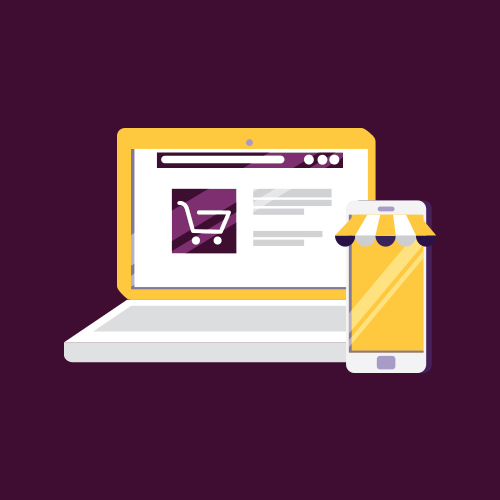We offer the best design services in town.
Outright Creators, the leading digital marketing agency in Hyderabad, understands that your app is more than just lines of code. It's your vision, your passion, and your business's future.Our team of experienced developers and designers is dedicated to turning your app dreams into a reality.App development encompasses various types, each tailored to specific platforms, functionalities, and user experiences. Here are some common types of app development
Use Case: Ideal for businesses requiring frequent content updates, such as news websites or blogs.
Native App Development
Native app development involves creating software applications specifically designed to run on a particular operating system (OS) or platform. These applications are written in languages and frameworks that are native to the target platform, providing optimised performance and access to platform-specific features. Native apps are typically distributed through app stores and can take full advantage of the capabilities and functionalities of the device they are designed for. (Swift for iOS, Kotlin/Java for Android).
Use Case:Offers the best performance and access to platform-specific features; suitable for apps that prioritize platform optimization.
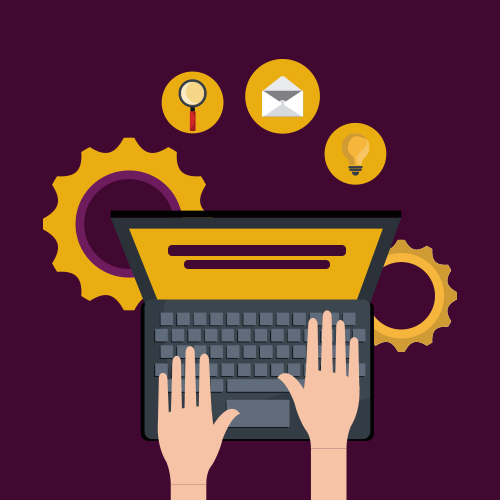
Cross-Platform App Development
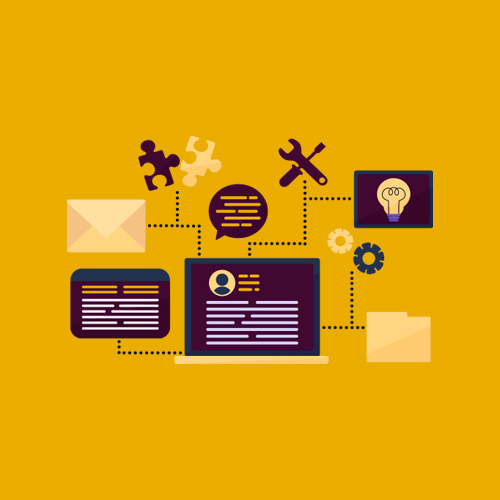
Cross-platform app development involves creating mobile applications that can run on multiple operating systems using a single codebase. This approach aims to streamline development, reduce costs, and reach a broader audience by building apps that work on both iOS and Android platforms. Cross-platform development frameworks and tools enable developers to write code once and deploy it across different operating systems, offering a more efficient and cost-effective solution compared to developing separate native apps.
Use Case: Efficient for businesses targeting a broad audience on different platforms without maintaining separate codebases.
Web App Development
Web app development involves the creation of software applications that are accessed and interacted with through web browsers over a network, typically the internet. Unlike traditional desktop applications, web apps do not require installation on a user's device and can be accessed from any device with a compatible web browser. Web apps cover a wide range of functionalities and can be designed for various purposes, including business tools, collaboration platforms, content management systems, and more. Technologies like HTML, CSS, and JavaScript.
Use Case: Suitable for applications where wide accessibility and easy updates are important, but may not offer the same performance as native apps.
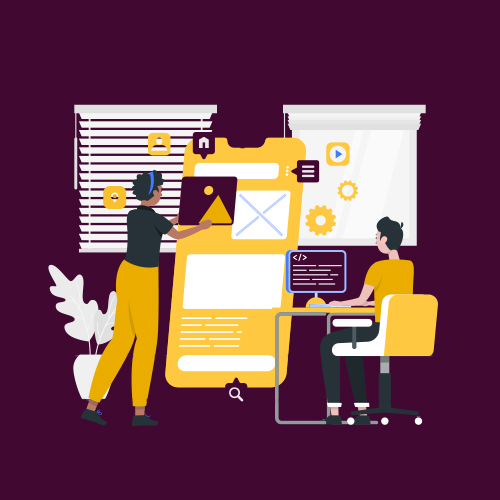
Progressive Web Apps (PWAs)
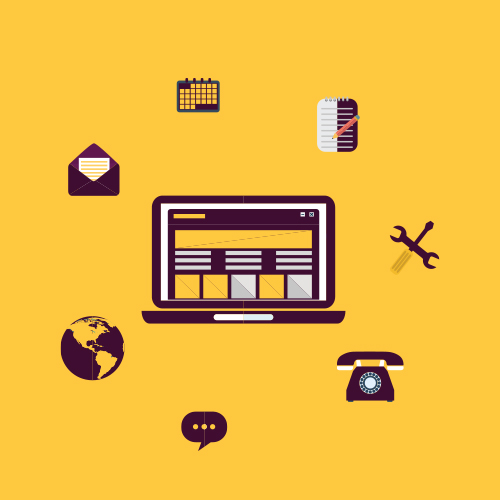
Progressive Web Apps (PWAs) are a type of web application that leverages modern web technologies to deliver a native app-like experience to users. The goal of PWAs is to provide a reliable, fast, and engaging experience across different devices and platforms, with a particular focus on mobile devices. PWAs are designed to combine the best features of both web and mobile applications, offering benefits such as offline functionality, push notifications, and enhanced performance.
Use Case: Ideal for improving user engagement on the web and providing a seamless experience across devices.
Hybrid App Development
Hybrid app development involves creating mobile applications that combine elements of both web and native applications. These apps are developed using web technologies (HTML, CSS, JavaScript) and then wrapped in a native container, allowing them to be installed and run on devices like native applications. Hybrid apps aim to leverage the strengths of both web and native development, offering a cost-effective and efficient way to create cross-platform applications.
Use Case: Useful when balancing between the performance of native apps and the flexibility of web technologies is essential.

Enterprise App Development
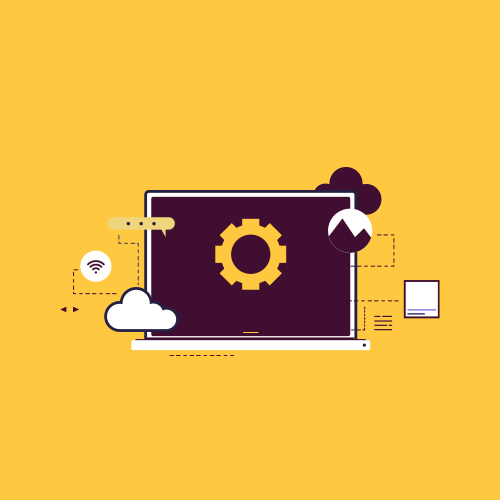
Enterprise app development involves creating software applications specifically designed to meet the needs and requirements of organisations, businesses, or enterprises. These applications are tailored to address the unique challenges, workflows, and processes within a particular business environment. Enterprise apps can range from tools that enhance internal communication and collaboration to sophisticated systems that streamline complex business processes.
Use Case: Addresses specific business needs, such as employee management, inventory tracking, or communication tools.
Augmented Reality (AR) App Development
Augmented Reality (AR) app development involves creating software applications that enhance the real-world environment by overlaying digital information, graphics, or interactive elements onto the user's view of the physical world. AR apps leverage the capabilities of mobile devices, wearable, or dedicated AR hardware to provide users with an immersive and interactive experience that blends the virtual and real worlds.
Use Case: Suitable for industries like gaming, education, healthcare, or retail, where an enhanced, interactive experience is desired.
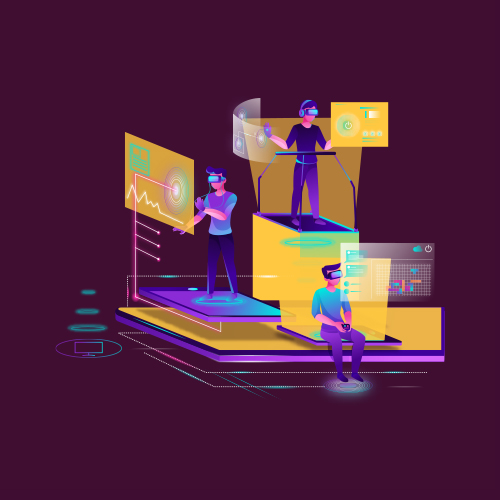
Virtual Reality (VR) App Development
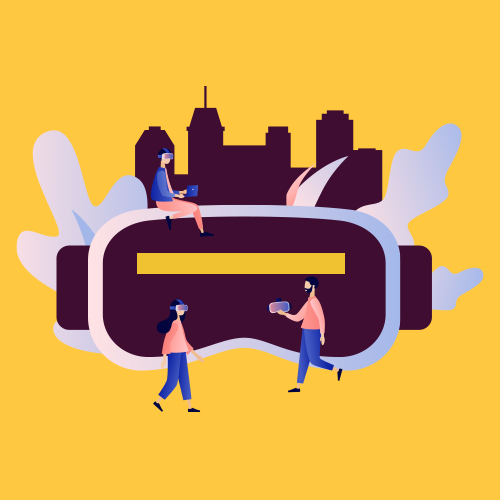
Virtual Reality (VR) app development involves creating software applications that immerse users in a computer-generated, three-dimensional environment. VR apps leverage specialised hardware, such as VR headsets, to provide users with an interactive and immersive experience where they can explore, interact, and engage with virtual surroundings. VR technology has applications across various industries, from gaming and entertainment to education, training, and healthcare.
Use Case: Common in gaming, simulations, training, and virtual tourism.
IOT App Development
Internet of Things (IoT) app development involves creating software applications that facilitate communication and interaction with IoT devices. IoT refers to the network of interconnected physical devices that exchange data and operate seamlessly to perform specific tasks. IoT apps play a crucial role in collecting, analysing, and presenting data from these devices, enabling users to monitor, control, and automate various aspects of their environment.
Use Case: Relevant for home automation, healthcare, industrial applications, and other IoT-driven industries.
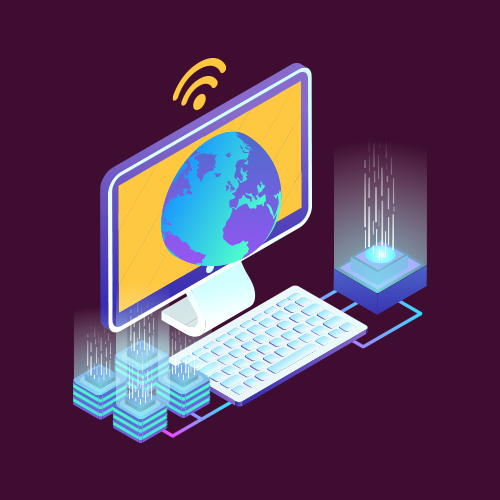
Game Development
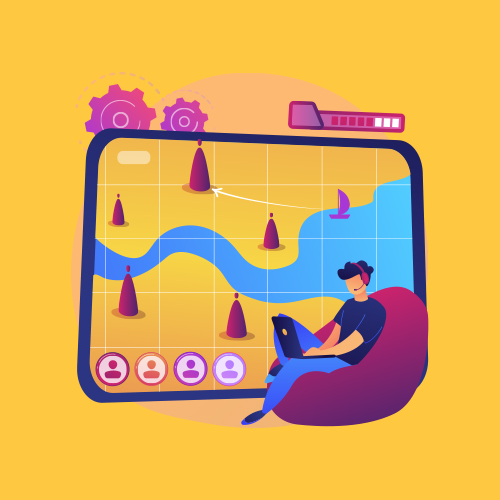
Game development is the process of creating interactive and entertaining software experiences known as games. Game developers use a combination of design, programming, art, sound, and other skills to bring games to life on various platforms, including consoles, PCs, mobile devices, and virtual reality systems. The game development process involves several stages, from concept and design to coding, testing, and final release.
Use Case: Ideal for entertainment and educational purposes, ranging from casual to immersive gaming experiences.
M-commerce App Development
Mobile commerce, often abbreviated as M-commerce, involves the development of applications specifically designed for mobile devices to facilitate online transactions and commerce. M-commerce apps enable users to shop, make payments, and conduct business transactions using their smartphones or tablets. These apps provide a convenient and on-the-go way for users to browse products, compare prices, and make secure purchases, contributing to the growth of the mobile e-commerce industry.
Use Case: Essential for businesses aiming to provide a seamless shopping experience on mobile devices.
